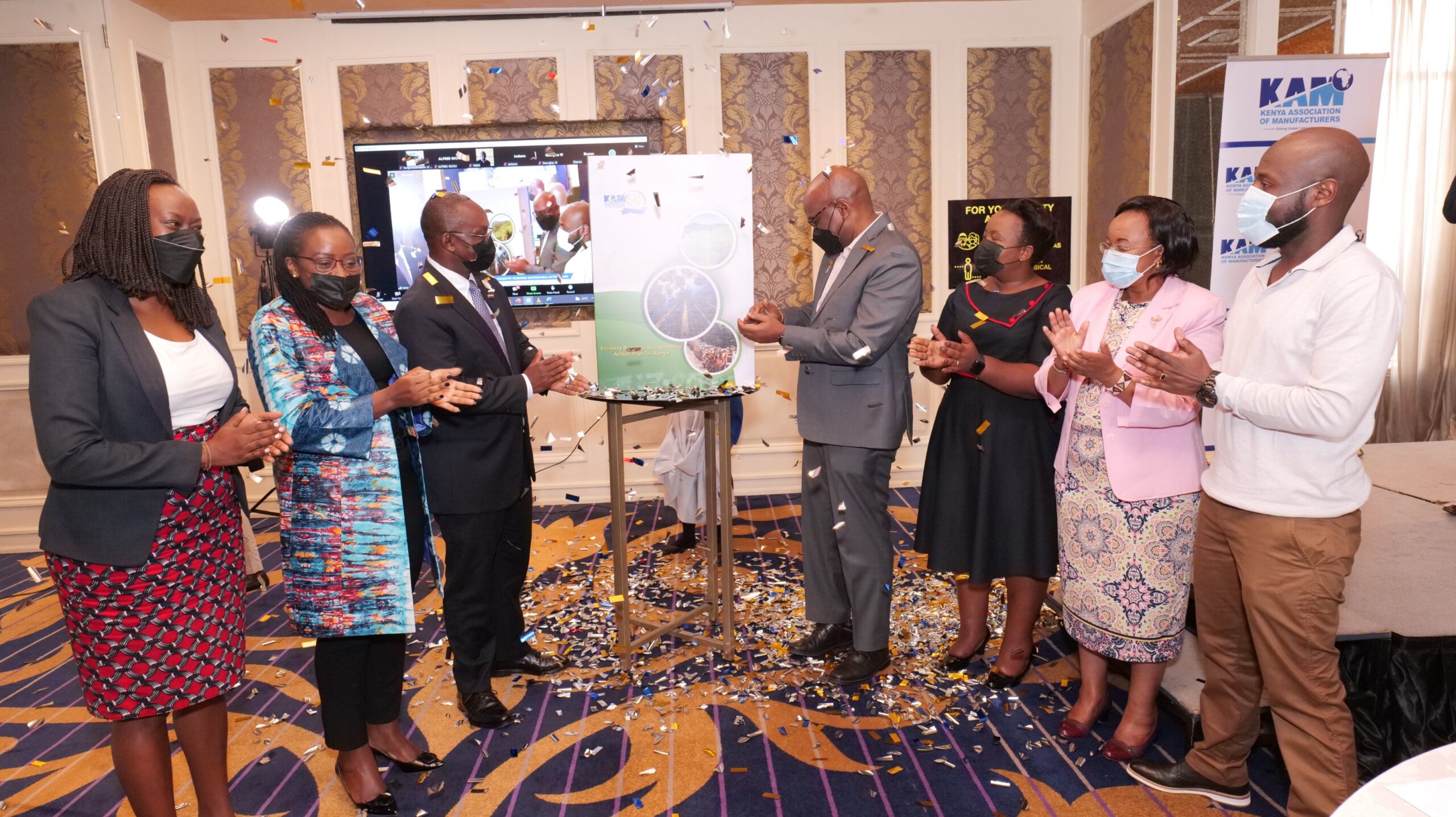
Monday, 29th November 2021, Nairobi: Manufacturers have today unveiled a strategy to sustainably expand forestry businesses in the country. The Forestry Business Sustainable Action Plan sheds light on interdependences of the forestry industry and other economic sectors for the country’s socioeconomic development, whilst preserving ecosystems.
Kenya Forest Service (KFS) Chairman, Peter Kinyua said that KFS is looking to fill in forestry business supply chain gaps in the country. “To reduce the gap between demand and supply in the forestry sector, we are providing technical expertise to private farmers to increase the quality and quantity of trees.
We have also partnered with various stakeholders, including the business community in restoring and managing urban forest parks. These initiatives shall offset carbon footprints and contribute to environment sustainability and climate change mitigation.
These programmes have been replicated in public urban green spaces in Nairobi, and is set to be replicated in other counties.” KAM Chairman, Mucai Kunyiha noted that the Plan is a local industry initiative towards restoring and replenishing the environment. “The Forestry Business Sustainable Action Plan is an initiative of uKAMilifu, our Environmental, Social and Governance (ESG) arm that houses our social impact programmes.
The plan provides insights on the extent to which the forestry sector strategies and programmes have been implemented, and level of sector-actors collaboration and coordination towards enhancing sustainability of the forestry sector, and areas of improvement.” Mr Kunyiha called for development of policies for sustainable forestry business, saying, “Knowledge management, smart forest approaches, multi-stakeholder engagement, innovation for sustainable use of resources, standardization of timber and wood products and lifting of the ban on logging shall drive sustainable forest business growth, whilst conserving our environment.” Kenya Forest Research Institute Senior Deputy Director for Research and Development, Dr Jane Njuguna, expressed the institute’s commitment to increasing the country’s forest cover, for sustainable economic development. “We have developed and deployed various technologies and innovations to enhance production, processing and distribution of tree seed in the country.
Most of these are ready to be commercialized by the private sector investors under various investment policy and legislations to cater for SMEs and large corporations to serve various users ranging from large scale to small scale operators. This is particularly crucial as the country’s population continues to increase, thus driving up demand for the forestry business products.” The Forestry Business Sustainability Action Plan for Kenya was commissioned as part of an inquiry into seeking ways to enhance the sustainability of Kenya’s forestry sector through a multi-stakeholder approach.
It mirrors global and regional best practices, with the main intent of guiding sector interlinking businesses to develop tailored sustainable actions that support the forestry sector in Kenya.
About Kenya Association of Manufacturers (KAM) KAM is the leading voice of manufacturing and value-add industries in Kenya, since its establishment in 1959.
The Association is committed to securing the socio-economic well-being of Kenyans, and consequently, alleviate inequality in the community. This is through uKAMilifu, which integrates Environmental, Social and Governance (ESG) factors into the Association’s role as the leading voice of manufacturing and value-add industries in Kenya. uKAMilifu seeks to demonstrate industry’s wider role in complementing Government’s initiatives towards driving development. Over the years, KAM’s work as a dynamic, vibrant and credible voice that unites industrialists, has seen the Association’s Membership base grow to over 1,400 industries cutting across 14 sectors. We remain at the forefront in the development of solutions and reimagining both the current and future manufacturing landscape in Kenya. Our work, geared towards driving the competitiveness and productivity of local industry, endeavours to ensure a dynamic and flourishing manufacturing sector and realize its double-digit contribution to the GDP.

Leave a Reply